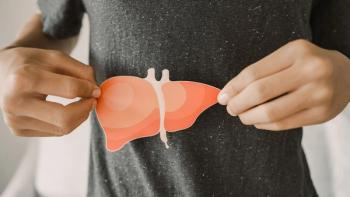
Cancer and Hurricane Preparedness: A Survivor's Perspective
Tips for coping include finding simple ways to pass time and not being in a hurry to go anywhere.
Another hurricane is brewing, and this time it has the potential to negatively impact numerous areas of Florida and other nearby states and territories. Unfortunately, I have experience weathering several storms as a long-term resident of Northern and Southern Florida, along with having worked as a volunteer in crisis management situations for close to 15 years. What I have not experienced, however, is being under medical care for cancer during a storm. As a cancer survivor, I have taken steps to prepare for this potential storm and checked in on survivor sisters and friends who are undergoing treatments. What follows are my thoughts, concerns and possible tips for self-care during and after a storm.
Water, non-perishable foods, batteries and all the essential supplies needed to prepare for a hurricane can be located on several websites. A cancer recovery brings about some special planning, which is important to consider. This may include contacting your hospital or physician to determine if you are considered to be in a special needs category due to your current treatments, or if you are early in your post-surgery procedures. In this case, contacting your local emergency management authority, physicians or hospitals can help you determine special evacuation centers you may be accepted to, where you can ride out the storm. If there are special needs shelters in your area, it is important to register as soon as possible and be accepting of whatever requirements they have in place, which could mean that you limit the supplies that you are allowed to bring. You may also be restricted on the amount of family members you can bring, due to limited space. This can be an emotional choice if you are a parent who is unable to bring your children with you, but it is a decision you may want to consider for the benefit of being healthy will help you be a parent in the long run. This is a situation for people who may be unsafe at a typical evacuation center or home.
For others, once you have purchased necessary supplies and made plans for where you will ride out a storm, the inconvenience and uncertainty of when things will return to normal can be the after-stress of a storm.
I recall having to ride out a significant storm once following the birth of my youngest child. There are many extra challenges maneuvering in the heat and going without electricity for what can be extended periods of time. You may have supplies, but you will also have to ration out the use of conveniences like a portable air conditioning unit, batteries and other resources. Patience and flexibility are important tools, as well as accepting the fact that you are potentially making the best choice you can while possibly having limited information to go by.
During such times, you may be stuck in your location to due to flooding or hazardous road conditions. Being prepared to stay put and occupying your time without the benefits of modern technology is part of the after-care. Some things you can have on hand include an old-fashion word search, a book or those new mindfulness coloring books. Stress can occur from being out of your daily routine, and this can occur for both children and adults. Anxiety can set in for some, due to limited natural light and a feeling of being closed in.
Tips for coping include finding simple ways to pass time and not being in a hurry to go anywhere. You must realize that you are in a safe situation as long as your basic needs are being taken care of. It is important to conserve your energy and take care of your mental wellbeing. Napping and sleeping is part of the process of taking care of yourself, as you will need energy when things begin to return to normal. Take breaks, walk around and use pictures or imagery to mentally revive yourself when you feel closed in. Sing or come back to a positive and comforting quote — it can also help you regain focus when you need to come back to a state of calm. If you are feeling anxious, realize if you are breathing from your upper chest and, if possible, focus on taking breaths that are as comfortable as possible, but are slowed, as they can help you feel less anxious. If possible, bring the breath down to your stomach. Take pauses by filling your belly or breathing more slowly and then take a gentle pause before exhaling. This can help to bring mental focus and conserve energy, along with bringing a sense of peace to your body.
Personal safety should be your priority, both before, during and after the storm. Homes and possessions can be replaced, but when addressing your medical care, YOU are a priority. Just realize that it takes time to get things back in place after a storm, so be flexible and stay as positive as possible. If the storm does not hit Florida or surrounding areas, use this time to review what you will do should there be any future storms this hurricane season. During this delicate time and as I get back to my own preparations, I hope everyone remains safe.




